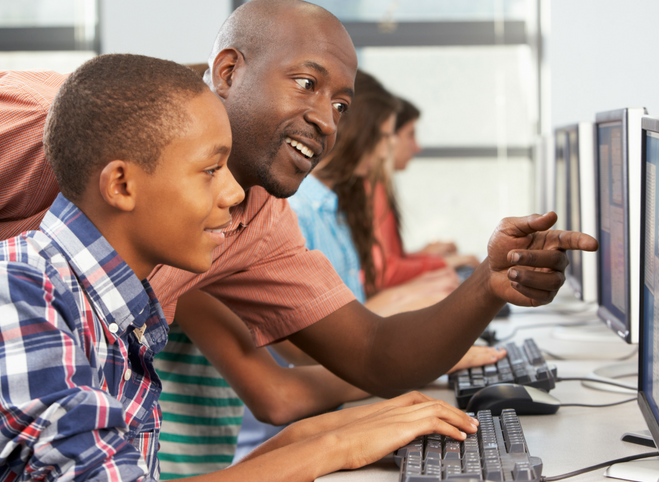Essential Skills Kids Learn Through Coding



People today live in a world made possible by software. Everyone can shop online, make calls via software-controlled networks, or navigate roads through apps. Companies are working on building houses controlled by software, providing medical care with robotics, and even creating cars that can run on their own.
Curiosity and persistence
Last but not least, coding helps children
exercise their unlimited curiosity and teaches them the value of
perseverance. Inc Magazine points out that computer programming helps kids question why things are
the way they are and how they can still be improved. Creating lines of code
from scratch, making mistakes along the way, and seeing the final output can be
an incredibly fulfilling experience that lets kids learn the value of persistence
and courage.
A better future
As the language of the future, computer
programming is set to open doors for careers in STEM in the future, with coding
fast becoming a vital and lucrative skill. Maryville University shares that other than computer programming, coding skills can
open doors for careers in the fields of information security, hardware
engineering, software development, database management, and network
architecture. These highly varied and exciting fields are set to grow
tremendously over the next decade, as more and more of the world is built
through computer programming.
In addition, although not every job in the
future will involve programming, the skills kids learn today from coding will
definitely be of use in any career. Computer science professor Dr. Dan Crow explains that even if children never become professional software engineers, mastering computational thinking can help them excel in a wide variety
of disciplines, from mechanical engineering and fluid mechanics to archaeology,
music, and business.
In truth, children are going to be surrounded by
computers for the rest of their lives. It's best if they are equipped early on
with the skills they need to understand how computers think and what they can
do with this ever-evolving technology.
For more on the topic, be sure to check
out Tamara Zentic’s deCoding Respect: Everyone can Code with HTML from Boys Town Press.
New on the Blog
Magical Mindset at the Most Magical Time of the Year
For many families, the holidays are the most wonderful time of the year - a magical season filled wi...
Countdown to Winter Break: Helping Students Manage Behaviors
It’s the final stretch before winter break. Hallways and classrooms are buzzing with the anticipatio...
Gratitude Is a Skill - Not Just a Season
As the holidays approach, gratitude tends to take center stage. Whether it’s a classroom activity, a...
Creating a Culture of Kindness in Your School
As a school counselor, you play a pivotal role in shaping the emotional climate of your school. When...
Turn the Page on Anxiety: 5 Books That Help Kids Feel in Control
Anxiety is one of the most common emotional challenges children face, and it can show up in many way...
Communication Is Key: Why Early and Positive Communication with Parents Really Matters
When it comes to helping kids grow, both in and out of the classroom, one of the most powerful tools...






